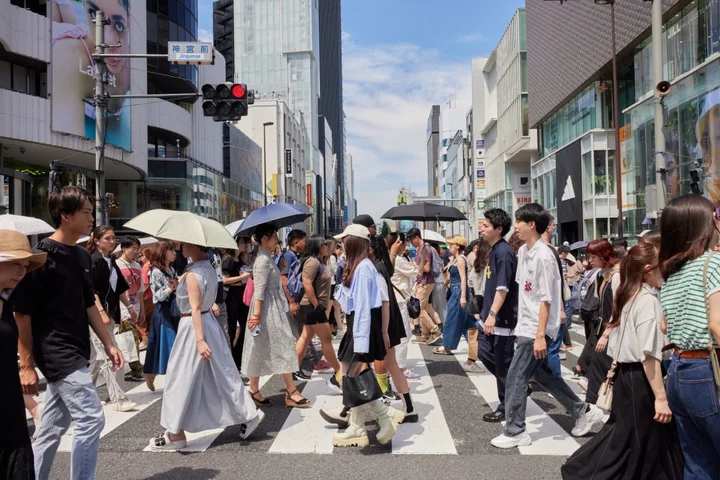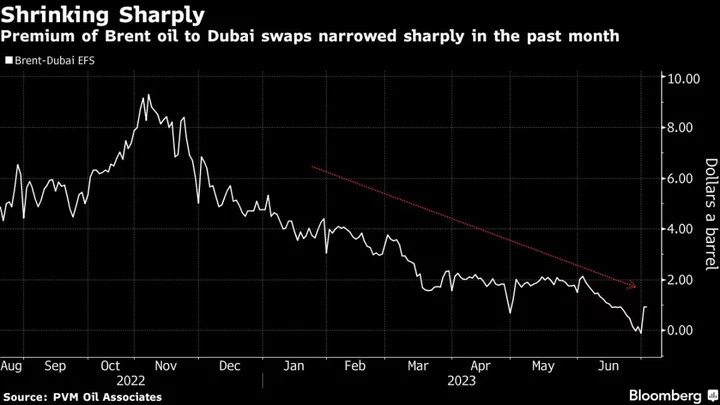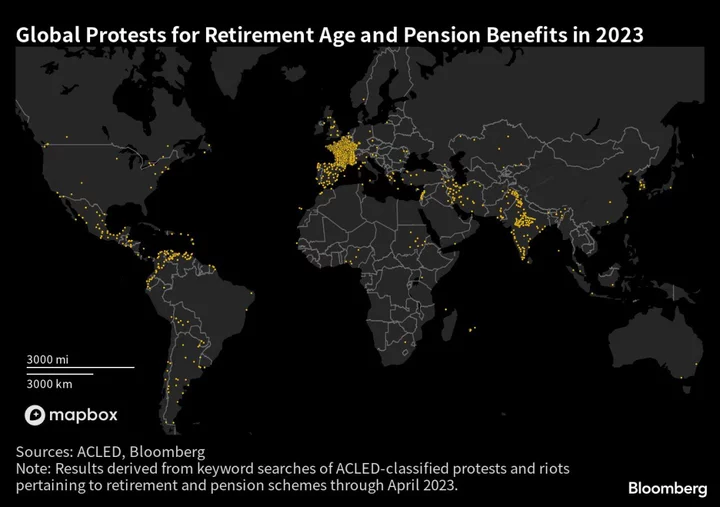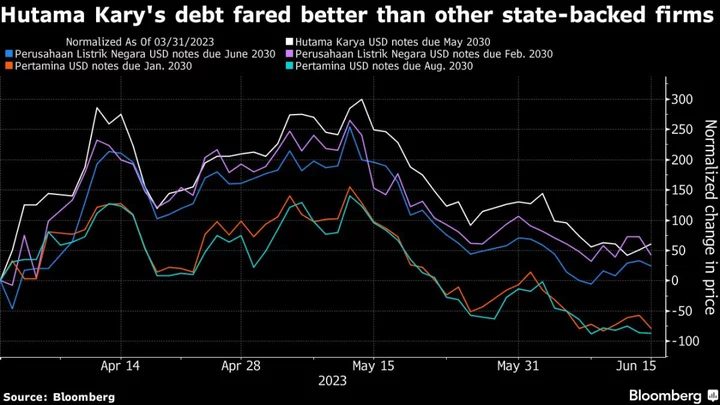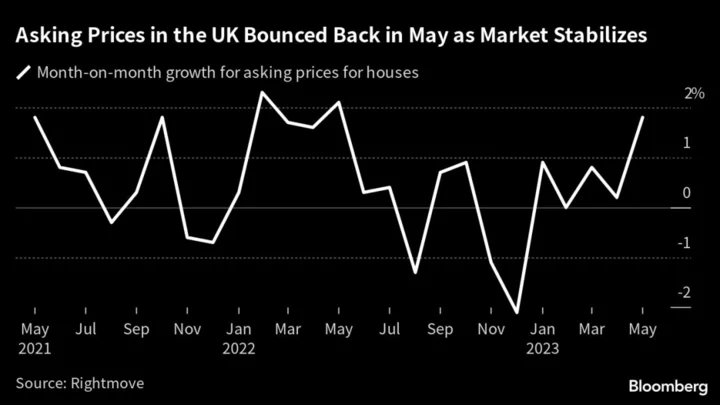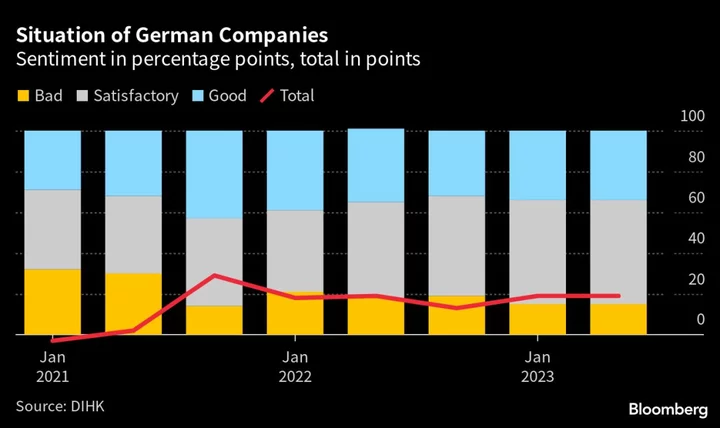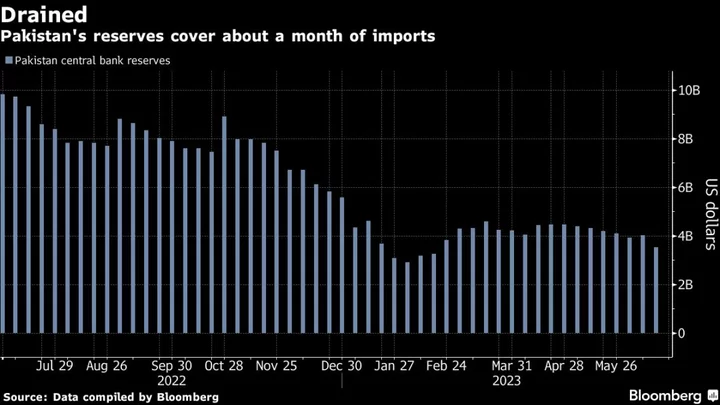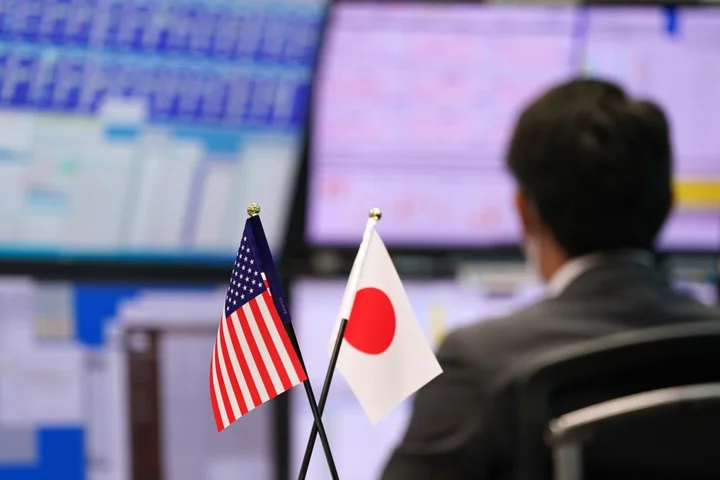Japan’s economy expanded at a much faster clip than forecast, propelled by robust exports in a sign that the recovery remains well on track.
Gross domestic product grew at an annualized pace of 6% in the second quarter, marking the strongest growth since the last quarter of 2020, Cabinet Office data showed Tuesday. The figure exceeded economists’ forecast of 2.9% growth. Net exports contributed 1.8 percentage points to the expansion versus consensus estimates of 0.9 point.
Tuesday’s data add to signs that the world’s third largest economy continues to recover from the pandemic, even as economists see headwinds on the horizon in the US, China and Europe. The result was consistent with views at the International Monetary Fund, which recently bumped up its 2023 growth outlook for Japan to 1.4%.
Still, the strong result came with caveats, as much of the growth came from external demand.
“Compared with the January-March period, the improvement seen in consumption driven by increased activity has weakened,” said Harumi Taguchi, principal economist at S&P Global Market Intelligence. “Rising prices are increasingly causing consumers to hold off on buying items.”
Trade data showed that exports remained resilient over the last quarter, led by auto shipments to the US and Europe.
Rising numbers of inbound travelers, whose contribution is also factored into the net exports component of GDP, provided a big economic boost after authorities lifted border controls at the end of April. The number of foreign visitors has recovered to more than 70% of pre-pandemic levels as of June, according to the Japan National Tourism Organization. Data for July are due Wednesday.
Tourism spending is expected to provide a bigger boost from August after China lifted a ban on group travel last week. Chinese tourists accounted for more than a third of the more than 1 trillion yen in such outlays in 2019.
What Bloomberg Economics Says...
“The only problem — it was all export driven and masked rocky conditions in domestic demand. The drop in consumption, despite a tailwind from this year’s reopening, reflects the impact of wages lagging far behind cost-push inflation.”
— Taro Kimura, economist
For the full report, click here.
Capital spending by businesses was flat, versus forecasts of a 0.4% increase, while private consumption unexpectedly declined.
Those signs of domestic weakness may quell market speculation that the Bank of Japan will seize the strong headline number as justification for debating whether to mull a move away from its massive stimulus, as Governor Kazuo Ueda has cited uncertainties in overseas markets in recent comments.
Still, the result may be welcome news to Prime Minister Fumio Kishida as he looks for positive developments to reverse a recent dip in his approval ratings in nationwide polls. His popularity suffered after the rollout of new ID card for citizens was beset by problems.
(Adds details from the report, economists’ commentary)

